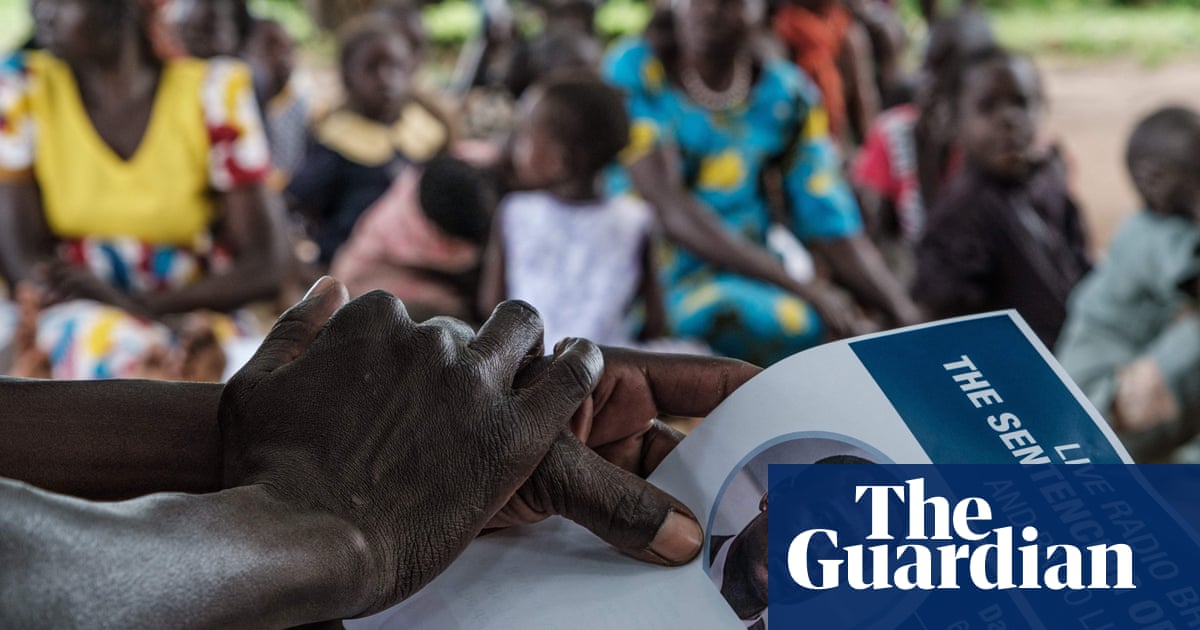Not a single country has contributed towards reparations for the victims and survivors of the Ugandan warlord Dominic Ongwen, despite the international criminal court awarding €52.4m (£44m) in February, according to the ICC Trust Fund for Victims (TFV).
The ICC reparations order – the largest in the court’s history – was issued after a 2021 ruling in which the court found Ongwen, a former commander of the Lord’s Resistance Army militia group, guilty of various war crimes committed between 2002 and 2005, including murder, torture, sexual enslavement, the conscription of children into hostilities, and brutal attacks on four camps for internally displaced people in northern Uganda.
Despite the high-profile ruling, and appeals by the TFV and the court, efforts to raise reparations for approximately 50,000 people have stalled. Survivors of Ongwen’s crimes, who have waited more than 20 years for justice, may have to wait a decade longer for redress, based on current targets. A number died before or during the trial, and many have spent their lives grappling with the mental and physical injuries, worsened by ageing, poverty and the trauma passed down through generations.
The bulk of the reparations would go towards symbolic payments of €750 to each person. The rest would be used to provide community rehabilitation programmes, including access to education and healthcare, and to provide remembrance to victims through monuments and memorial activities.
 View image in fullscreen
View image in fullscreen
“The biggest issue is that states say: ‘Why should we pay for what Ongwen did? Why should we be covering this?’” said Deborah Ruiz Verduzco, the TFV’s executive director. “The answer to that is: states created the ICC with a notion of justice that includes the victims, and not being able to deliver on reparations puts the legitimacy of the court at risk.”
By the time the case went to trial in 2016, ICC prosecutors had been investigating for more than a decade. About 4,000 survivors gave harrowing testimony, detailing how children recruited to fight were forced to witness killings as part of their training, and were taught not to distinguish between civilians and combatants, or how women faced rape and enforced pregnancy under threat of execution.
The court sentenced Ongwen to a 25-year prison term, which he is serving in a Norwegian jail.
When the perpetrator does not have any assets, as in Ongwen’s case and the majority of reparations cases handled by the court so far, payment falls to voluntary contributions by states, international organisations and private donors, which can depend on political goodwill.
“The reason these crimes were prosecuted is that they shatter the conscience of the international community as a whole,” said Ruiz Verduzco. “[The reparations] are a symbolic way in which the court, and therefore the international community, is recognising that what happened to the victims should not have happened.”
Ruiz Verduzco said the lack of proper policies on the reparations’ funding hampered their work. Out of five reparations orders the court has issued to date, only one, the Katanga case, with about 300 survivors and a reparations order of £770,000, has been fully implemented.
 View image in fullscreen
View image in fullscreen
“The magnitude [of the Ongwen reparations] has [forced] us to ask, is this manageable, and how can it be achieved?” said Ruiz Verduzco. “We believe that it’s possible but it requires us to construct a lot of bridges that are not there yet.”
Renata Politi, a legal adviser for the UK-based rights organisation Redress, which has urged the international community to provide speedy, survivor-centred reparations, said: “The Ongwen case is the ultimate test of whether the ICC can turn the reparations into a tangible reality for survivors.”
∎